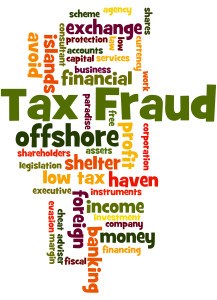The Truth About Hiding Offshore Income for Expats

Avoiding Taxes With Offshore Income
The IRS has stated that avoiding taxes by hiding Offshore Income or overseas assets in unreported offshore accounts remains on its annual list of tax scams known as the “Dirty Dozen” for the 2015 filing season.
Since the first Offshore Voluntary Disclosure Program (OVDP) opened in 2009, the IRS reports that there have been more than 54,000 disclosures and more than $8 billion has been collected from this initiative. The IRS conducted thousands of offshore-related civil audits that have produced tens of millions of dollars. The IRS has also pursued criminal charges leading to billions of dollars in criminal fines and restitutions.
Even though the IRS has faced several years of budget reductions, the IRS continues to increasingly focus in this area of the U.S. tax gap.
Hiding Offshore Income
Over the years, numerous individuals have been identified by the IRS as evading U.S. taxes by hiding income in offshore banks, brokerage accounts or nominee entities and then using debit cards, credit cards or wire transfers to access the funds. Others have employed foreign trusts, employee-leasing schemes, private annuities or insurance plans for the same purpose. As the world becomes smaller and information sharing becomes more transparent amongst countries of the world, hiding offshore income has become more challenging and not for the faint of heart.
The IRS uses information gained from its investigations to pursue taxpayers with undeclared accounts, as well as the banks and bankers suspected of helping clients hide their assets overseas. The IRS works closely with the Department of Justice (DOJ) to prosecute tax evasion cases.
While there are legitimate reasons for maintaining financial accounts abroad, there are reporting requirements that need to be fulfilled irrespective of the reason for having the account. U.S. taxpayers who maintain such accounts and who do not comply with reporting requirements are breaking the law and risk significant penalties and fines, as well as the possibility of criminal prosecution. The savings from non-compliance are not worth the risk and potential penalties.
Global Third-Party Reporting
Under the Foreign Account Tax Compliance Act (FATCA) and numerous intergovernmental agreements (IGAs) between the US and partner jurisdictions, automatic third-part account reporting began in 2015, making it less likely that offshore financial accounts and unreported offshore income will go unnoticed by the IRS. The Streamlined Procedures, which are still in effect, allow delinquent U.S. taxpayers to become compliant.
If you are like many taxpayers that have recently discovered their reporting obligations regarding offshore assets and offshore income, now is the time to make the necessary corrections and to become fully compliant.
Our goal at Tax Samaritan is to provide the best counsel, advocacy and personal service for our clients. We are not only tax preparation and representation experts, but strive to become valued business partners. Tax Samaritan is committed to understanding our client’s unique needs; every tax situation is different and requires a personal approach in providing realistic and effective solutions.
If you would like a quote, please click on the button below for a free, no obligation Tax Preparation quote and/or free 30-minute consultation to discuss your situation regarding offshore income further:
Tax Samaritan is a team of Enrolled Agents with over 25 years of experience focusing on US tax preparation and representation. We maintain this tax blog where all articles are written by Enrolled Agents. Our main objective is to educate US taxpayers on their tax responsibilities and the selection of a tax professional. Our articles are also designed to help taxpayers looking to self prepare, providing specific tips and pitfalls to avoid.
When looking for a tax professional, choose carefully. We recommend that you hire a credentialed tax professional such as Tax Samaritan that is an Enrolled Agent (America’s Tax Experts). If you are a US taxpayer overseas, we further recommend that you seek a professional who is experienced in expat tax preparation, like Tax Samaritan (most tax professionals have limited to no experience with the unique tax issues of expat taxpayers).
Randall Brody is an enrolled agent, licensed by the US Department of the Treasury to represent taxpayers before the IRS for audits, collections and appeals. To attain the enrolled agent designation, candidates must demonstrate expertise in taxation, fulfill continuing education credits and adhere to a stringent code of ethics.
Every effort has been taken to provide the most accurate and honest analysis of the tax information provided in this blog. Please use your discretion before making any decisions based on the information provided. This blog is not intended to be a substitute for seeking professional tax advice based on your individual needs.



All About Randall Brody
Randall is the Founder of Tax Samaritan, a boutique firm specializing in the preparation of taxes and the resolution of tax problems for Americans living abroad, as well as the other unique tax issues that apply to taxpayers. Here, they help taxpayers save money on their tax returns.